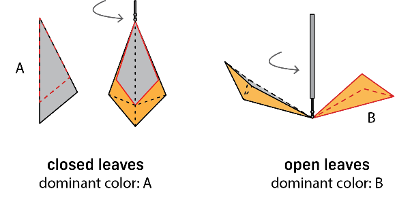Harvard Chan NIEHS Center for Environmental Health
The Harvard Chan National Institute of Environmental Health Sciences (NIEHS) Center for Environmental Health is a coordinated set of resources and facilities supporting environmental health research and training activities throughout the greater Boston area. The center promotes integration between basic and applied environmental science, and fosters collaborations that cross departmental and institutional boundaries.
Building 1-1402
Heat Island Art Project
The Fairmount Greenway Task Force has been awarded a pilot project of $30,000 for the research and development phase of an art project designed to raise awareness in the Boston metropolitan area of the impact of heat on health. The art project – Heat Island Art – will consist of fabricated trees, or groves of trees, with leaves made from nitinol, a heat-sensitive “smart material.” The research and development phase will consist of building-out the concept of “working leaves” that is, designing the leaf structure such that it will realistically illustrate how trees change the ambient temperature. Since nitinol, a lightweight metal foil-like material, flexes open more completely as the ambient temperature rises from 70° to 80° to 90° F, the nitinol leaves will be partially open at 80°F and fully open at 90°F. Visitors to Heat Island Art, when installed will be able to appreciate how a tree canopy cools the local space.

The project PI is Michelle Moon, Fairmount Greenway Project Manager, who is well-known in the City of Boston and environs for her activism and project direction on behalf of healthy people and healthy places. Her colleagues in this endeavor are Carolina Aragón, ASLA, Assistant Professor of Landscape Architecture, UMASS Amherst, and Camille Barchers, Assistant Professor of Regional Planning, UMASS Amherst.
Clearly, this pilot project is funding Phase 1 of a project, which, in its full realization, has multiple aims and arms. Successive phases will include educational materials about how urban heat islands increase the ambient temperature, the effects of heat on health, and pre-post surveys of visitors to the art installation regarding their awareness of the impact of climate change and heat on health. This project ties in tightly with other climate-related projects across metropolitan Boston including projects by The Fairmount Collaborative (Climate Change), Speak for the Trees, the Trust for Public Land (Climate Smart Cities), Boston’s city-wide Tree Canopy Study, the City of Boston’s Tree Planting initiative ($1M), and Climate Ready Boston.

Community engagement is built-in and has already involved community members choosing the site(s) for the art trees. Community members will assemble the modular art trees and design and host programming at the installation site. The chosen site, in a racially mixed neighborhood affectionately known as West of Washington (WOW), is an undeveloped parcel located in Codman Square in Dorchester. It is next to the Talbot Station of the MBTA Fairmount Line and a Blue Bikes Station. Visitors can easily arrive on-foot, by bicycle or by public transportation. Funding is being sought for installation of Heat Island Art in the WOW neighborhood for the summer of 2021.